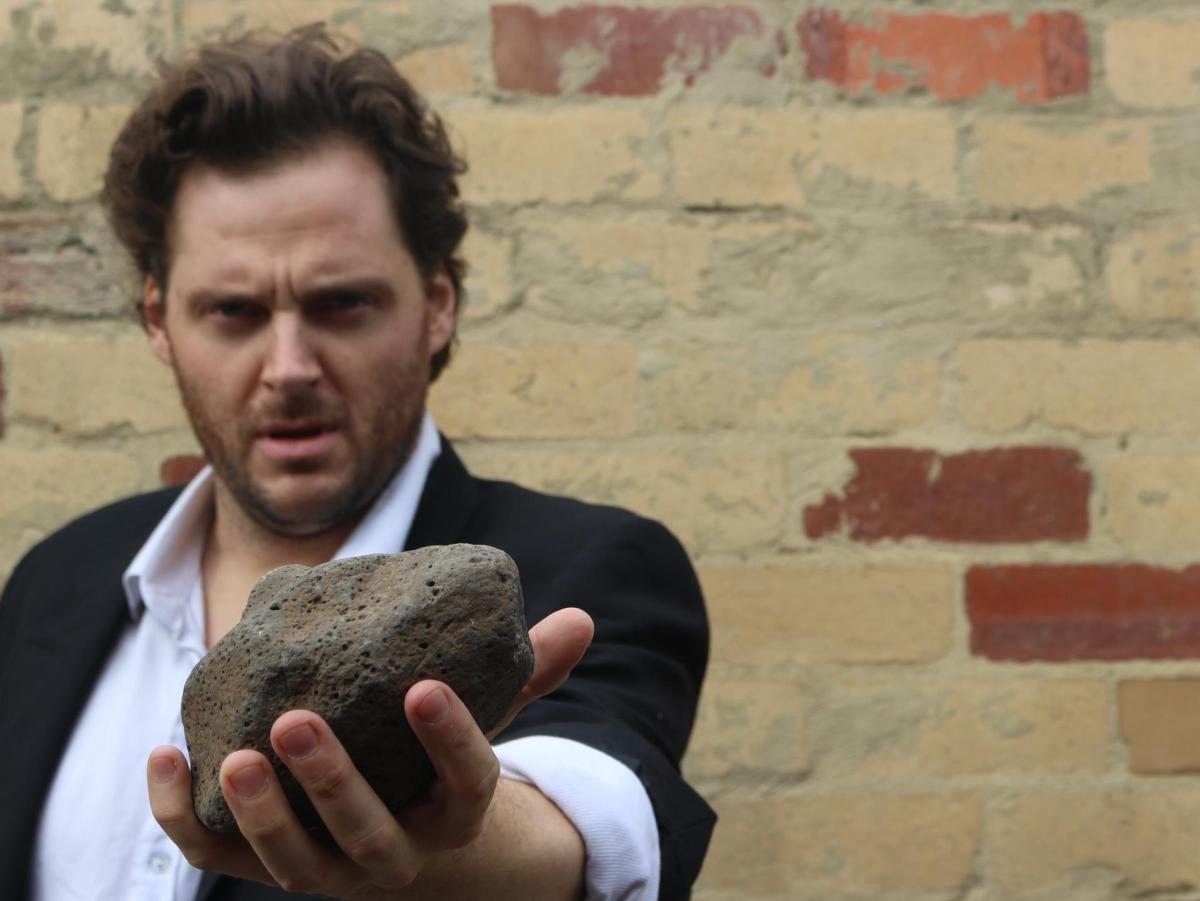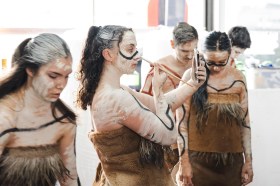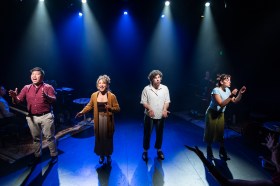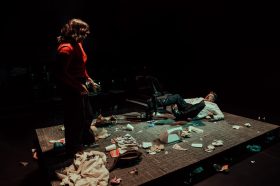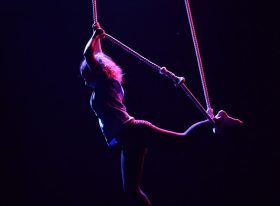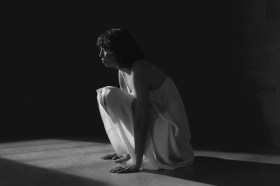The Parricide (parricide referring to the killing of one’s parents or someone in a similar role), written by Diane Stubbings and directed by Karen Berger, chronicles the period in which Fyodor Dostoyevski was writing The Brothers Karamazov. Dostoyevski had just been released from a Siberian prison camp, a punishment for his involvement in the Petrashevsky Circle, a literary discussion group with utopian socialist ideals.
The play deals with Dostoyevski’s ongoing moral struggle with his level of engagement in political activism alongside the pressure on him to complete a novel whilst dealing with his epilepsy. This is overshadowed by his financial difficulties due to a gambling addiction. Add to that complications of the heart and it is a very complex story indeed.
The action begins when his publisher decides to assign him a stenographer, Anna, to facilitate his writing. This sets up a love triangle between Dostoyevski, Anna and his current lover, feminist and intellect, Yelena. Interestingly the romantic liaison between Dostoyevski and Anna has a definite Jane Eyre feel about it. Anna, small and plain, clever and kind, is dealing with a volatile and irrational man who is both dependent on her but also to whom she is duty-bound. Clearly this is a formula which was very effective for Bronte, but it does feel overly familiar.
Olivia Monticciolo as Anna, Nick Simpson-Deeks as Kolya (Dostoyevski’s publisher), and Daniel Last all put in fine performances, however Simpson-Deeks’s constant finger pulling becomes distracting after a couple of scenes. Strategies such as these individual tics, minor costume changes (the fastening of a couple of buttons) and switching accents are used to alert the audience to a transition in character and place, but this is inadequate at times and quite confusing.
I wonder if the playing of Dostoyevski (Lyall Brooks) could be toned down a little. The characterisation of Dostoyevski is of a highly passionate and erratic man, prone to explosive outbursts; I feel this could be played with a little more subtlety. The constant pounding of a rock against table and other hard surfaces is also difficult to endure acoustically in such a confined theatre space as La Mama.
The stand-out performance is Zoe Ellerton-Ashley playing Dostoyevski’s lover, Yelena. Her assured handling of the role brings great depth to the scenes she is in. The passion between herself and Dostoyevski is evoked well.
The handling of Dostoyevski’s gambling problem, portrayed by a soundtrack of a roulette table and Brooks staring fixedly at so-called imaginary table, is overly literal and brings little insight. Indeed the soundtrack, I feel, could be more restrained in general. It is difficult at times to know whether a knock at the door is actually meant to represent the sound of a firing squad, such is its volume.
Overall The Parricide provides an interesting insight into a fascinating figure, but perhaps the play casts its net too wide in trying to encompass the political backdrop, and the complex story plots Dostoyevski was grappling with interwoven with his own physical, financial, spiritual, philosophical and romantic journey, all in eighty minutes: an ambitious feat surely worthy of Dostoyevski himself.
Rating: 3 out of 5 starsThe Parricide
Writer: Diane Stubbings
Director: Karen Berger
Dramaturg: Dave Letch
Set and Costume Design: Christine Urquhart
Lighting Designer; Light & Sound Operator: Douglas Montgomery
Sound Designers: Karen Berger & David Joseph
Production Manager: Alicia Benn-Lawler
Cast: Lyall Brooks, Olivia Monticciolo, Nick Simpson-Deeks, Zoe Ellerton-Ashley, Daniel Last
La Mama Theatre, Faraday St, Carlton
www.lamama.com.au
7 – 25 May
